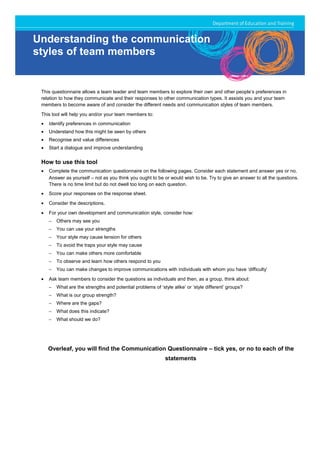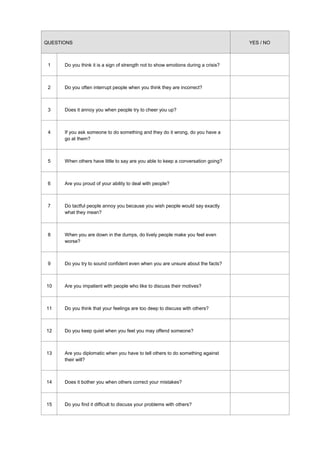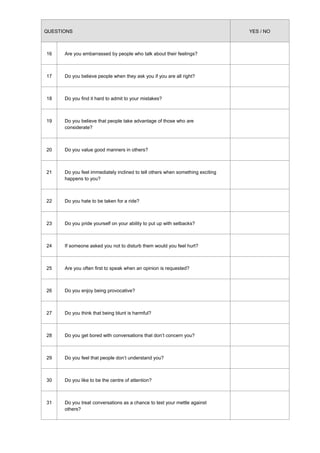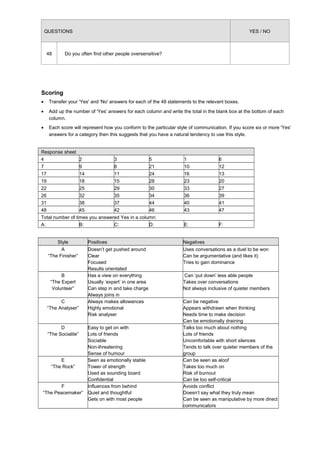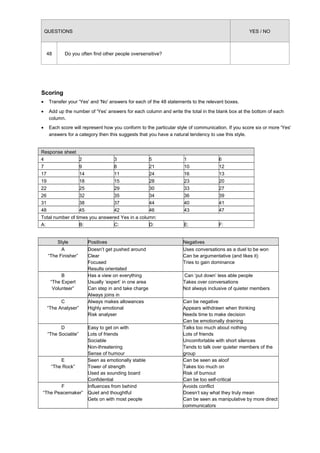This document outlines a communication questionnaire designed for team leaders and members to explore their communication preferences and styles. It encourages self-reflection on how individuals' communication is perceived by others and promotes awareness of team dynamics. Additionally, it provides guidelines for completing the questionnaire and analyzing results to foster better communication within teams.
